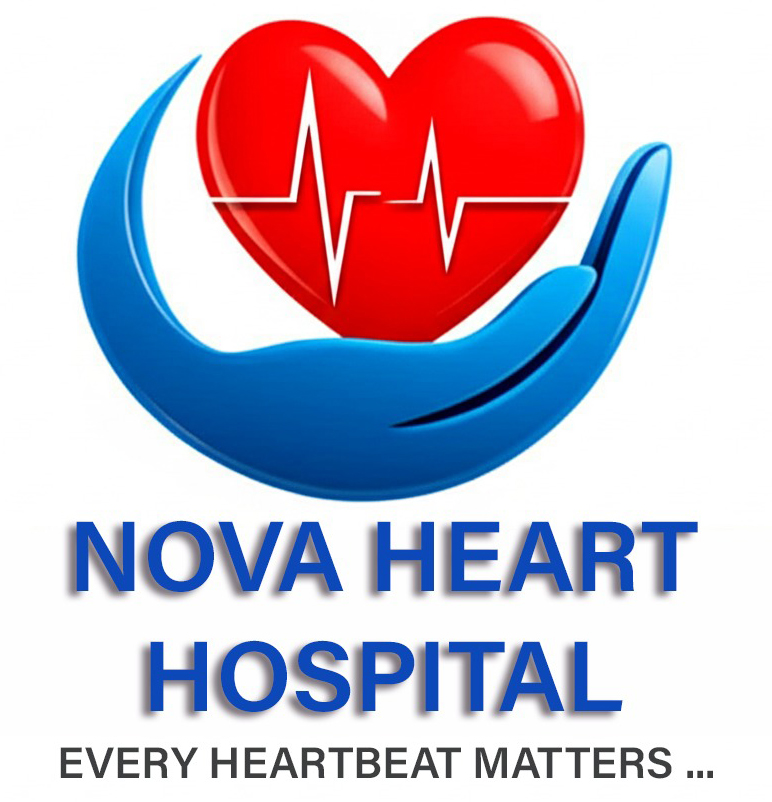WHAT IS A CARDIOLOGIST?
A cardiologist is a heart specialist. They specialize in treating heart conditions and diseases as well as helping patients manage their heart conditions. A cardiologist will treat any symptoms of heart diseases that you have and diagnose any possible heart conditions.
What are the causes of chest pain?
Although most people think of chest pain as a symptom of a heart problem/heart attack, it can be caused by many things. Chest pain can be a symptom of following diseases.
- Heart diseases, like myocardial infarction (heart attack), coronary artery disease (blockages in the blood vessels of your heart), pericarditis (inflammation of the lining of heart), aortic dissection (a tear in the wall of aorta) or aortic aneurysm (bulging section of aorta).
- Digestive problems such as gastroesophageal reflux disease(acidity), an ulcer, gallstones, esophagitis (inflammation of lining of esophagus), hiatus hernia (slippage of abdominal organs in chest cavity) or gastritis.
- Lung problems such as a pulmonary embolism (a blood clot in an artery of your lung), chronic obstructive pulmonary disease (COPD), pneumonia, pleuritis (inflammation of the membrane around your lungs) or pneumothorax (air inside your pleural cavity)
- Musculoskeletal problems, such as a broken rib or muscle spasm.
- Cancer involving structures in the chest.
- Stress, anxiety or panic attacks.
What are the symptoms of heart attack?
Chest pain can be a symptom of a heart attack. Others include:
- Sweating.
- Nausea or vomiting.
- Shortness of breath.
- Light-headedness or fainting.
- A rapid or irregular heartbeat.
- Pain in your back, jaw, neck, upper abdomen, arm or shoulder.
What are the characteristics of cardiac (heart related)chest pain?
- Sensation in the chest of squeezing, pressure, burning, tightness in the retrosternal area
- Radiation to the shoulder, neck, inner arm, jaw, epigatrium
- Lasts for a few mintues
- Abolishes with rest.
What’s the Link Between Smoking and Heart Disease?
About 30% of all heart deaths are caused by cigarette smoking and smoking is the single largest preventable cause of heart diseases. Globally tobacco causes 6 million deaths every year.
Among other things, the nicotine in smoke causes:
- Less oxygen to the heart
- Higher blood pressure and heart rate
- More blood clotting
- Damage to cells that line coronary arteries and other blood vessels
What Are the Risk Factors for Coronary Artery Disease?
There are some risk factors that you can’t do anything about (Non modifiable). These include:
- Being male
- Being a woman who is post menopause
- Being older
- Having a family history of heart attack or coronary artery disease
Other risk factors can be controlled. These include:
- Smoking
- High cholesterol
- High blood pressure
- Lack of exercise
- Obesity
- Diabetes
- Unhealthy diet
- Stress
By improving your habits, you can cut your risk of heart attack.
What Should I Do If I Have Risk Factors for Coronary Artery Disease?
You can do several things to cut your chances of heart disease. If your arteries are already blocked, you can slow the damage with a healthy lifestyle. A healthy lifestyle can help keep your arteries strong and clear of plaque. To improve your heart health, follow these tips:
- Quit smoking.
- Control conditions such as high blood pressure, high cholesterol and diabetes.
- Stay physically active.
- Eat a low-fat, low-salt diet that’s rich in fruits, vegetables and whole grains.
- Maintain a healthy weight, do regular exercise.
- Reduce and manage stress.
What dietary changes can I make to keep my heart healthy?
Eating right is a powerful way to reduce or even eliminate some heart disease risk factors. A heart-healthy diet can help cut total and LDL (“bad”) cholesterol, lower blood pressure, lower blood sugar, and help you to loose weight.
Try these tips:
- Eat more vegetables, fruits, whole grains, and legumes.
- Avoid trans fats in your diet (like fried fast food, potato, pizza, canned frosting etc). Prefer unsaturated fat over saturated ones.
- Eat lean sources of protein, such as chicken, fish, and soy. Avoid red meat, as this tends to be high in fat and cholesterol.
- Eat complex carbohydrates such as whole-grain bread, rice, and pasta and limit simple carbohydrates such as regular soda, sugar, and sweets.
- Cut down salt in your diet.
- Exercise regularly (At least morning walk for 150 min per week)
What Causes Heart Problem In COVID-19 Patients?
As the body’s immune system fights against the virus, the inflammatory process can damage some healthy tissues including those in the heart. Inflammation also affects the inner surface of the veins and arteries which can cause blood vessels todamage and some might lead to blood clots within them. All of which can compromise the blood flow of the heart or other organs of the body. Even infection can speed up the heart rate, with increase in oxygen demand and decrease in oxygen supply resulting in damage to the heart.
Who Is More Likely To Develop Cardiac Issues in COVID-19?
Elderly subset of people and those with comorbidities like people who are diabetic, hypertensive, people with lung diseases and immunocompromised status are more likely to have more complications during COVID infection.


